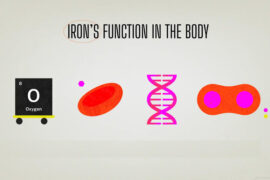According to a recent study conducted by researchers at Yale, cancer cells with extra chromosomes rely on those additional chromosomes for the formation of tumors. The researchers discovered that by removing the extra chromosomes, the cells were unable to grow tumors. This finding opens up the possibility of developing a novel cancer treatment strategy that specifically targets the additional chromosomes. The study, co-led by Vishruth Girish and Asad Lakhani, was published in the journal Science.
In human cells, the typical number of chromosomes is 23 pairs. Extra chromosomes, a condition known as aneuploidy, are considered an anomaly. However, the role of these additional chromosomes in cancer development has been unclear—whether they cause cancer or are a result of it.
“If you look at normal skin or normal lung tissue, for example, 99.9% of the cells will have the right number of chromosomes,” said Jason Sheltzer, assistant professor of surgery at Yale School of Medicine and senior author of the study, adding, “But we’ve known for over 100 years that nearly all cancers are aneuploid.”
The researchers developed a new approach called Restoring Disomy in Aneuploid Cells using CRISPR Targeting (ReDACT) and applied it to melanoma, gastric cancer, and ovarian cell lines. They specifically targeted the removal of the abnormal third copy of the “q arm” of chromosome 1, which is found in multiple cancer types, is associated with disease progression, and occurs early in cancer development.
Sheltzer, who is also a researcher at Yale Cancer Center, said, “For a long time, we could observe aneuploidy but not manipulate it. We just didn’t have the right tools. But in this study, we used the gene-engineering technique CRISPR to develop a new approach to eliminate entire chromosomes from cancer cells, which is an important technical advance. Being able to manipulate aneuploid chromosomes in this way will lead to a greater understanding of how they function.”
By successfully eliminating the extra chromosomes, the researchers observed that the cells lost their ability to form tumors. This indicates that the additional chromosomes play a crucial role in tumor formation and progression. The study’s findings provide insights into the potential for targeted therapies that focus on disrupting the presence of extra chromosomes in cancer cells.
While further research is needed to explore the applicability of this approach across various cancer types, the study highlights a promising avenue for developing more precise and effective treatments for cancer by specifically targeting the abnormal chromosomes.
Disclaimer:
The information contained in this article is for educational and informational purposes only and is not intended as a health advice. We would ask you to consult a qualified professional or medical expert to gain additional knowledge before you choose to consume any product or perform any exercise.







